- 0208 293 1331Call us
- office@pointers-school.co.uk Email us
Academic excellence, expertise in pastoral care and inspiring teaching are the cornerstones of The Pointer School Curriculum. Each child at Pointers is given the opportunity to experience the joy and excitement of learning in an environment which cultivates their talents, celebrates their individuality, and builds their confidence.
This journey from Reception to Year 6 develops intellectual independence and an enduring love of learning for its own sake, equipping children for the challenges of a rapidly changing world. Our programmes of study extend beyond the National Curriculum. They include not only the full range of academic subjects but also a wide variety of physical and creative experiences. Pupils benefit from opportunities to exercise initiative, develop team-working skills, and participate in visits beyond the classroom. Pupils are supported through their academic progress with an aim to foster in them an awareness and understanding of a range of spiritual, moral, cultural and social issues. In this way, our curriculum promotes a child’s development into a compassionate, empathetic and confident individual.
A range of co-curricular activities are organised by the school in order to enrich the experience of pupils. It also includes the ‘hidden curriculum’, or what the pupils learn from the way they are treated and expected to behave. We aim to teach pupils how to grow into positive, responsible people, who can work and cooperate with others while developing knowledge and skills, so that they achieve their true potential.
We believe in the concept of lifelong learning, and in the idea that both adults and children learn new things every day. We maintain that learning should be a rewarding and enjoyable experience for everyone. Through our teaching we equip children with the skills, knowledge and understanding necessary to be able to make informed choices about the important things in their lives. We believe that appropriate teaching and learning experiences help our children to achieve our main goal at Pointers; for children to lead happy, fulfilling and rewarding lives.
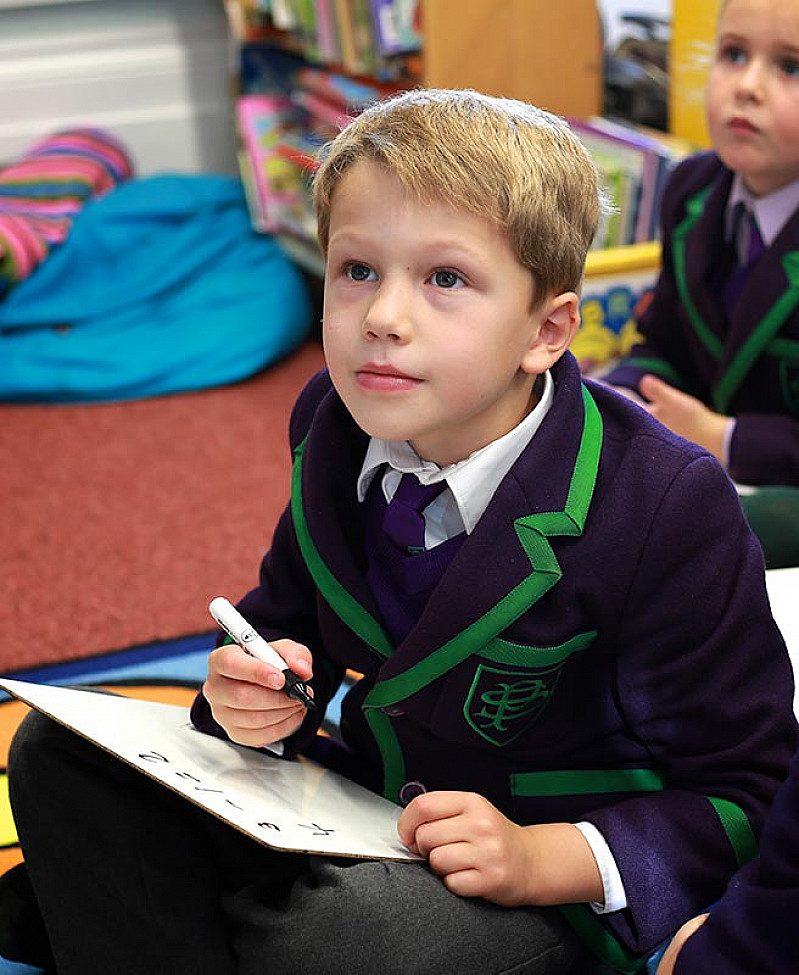
During their time at Pointers, children will experience the beauty and logic of maths as it unfolds before their eyes.
We’ve created a bespoke curriculum for maths at Pointers, tailored to build children’s confidence while mastering key concepts. We follow the National Curriculum but infuse learning with varied additions to ensure children excel. Pupils spend their first three years after Reception using the Singapore Maths model, which provides a firm numerical foundation and prepares children for the second half of their maths journey in years 4 through 6 when they consolidate skills for entrance exams to 11 plus and top independent schools.
Singapore maths is based on over 40 years of research and follows the three phase approach (concrete, pictorial and abstract). The first phase is the ‘doing phase’, when a child first handles objects to better understand that objects represent number. The next phase is based on pictures (seeing phase), when visual representations of concrete objects are used to model problems. The abstract (or symbolic) phase comes last. This is when children use abstract symbols (numbers) to model problems. A child will not progress to the abstract phase unless they have demonstrated a secure understanding of the previous phases.
In order to ensure children are well prepared for exams in Year 6, children at Pointers use their strong foundation of maths to gain mastery of concepts in years 4 through 6. Children are also taught non-verbal and verbal reasoning skills which are crucial for exam preparation. Pointers children leave school confident in problem solving and numeracy ready for the challenges of secondary school.
English is given the utmost importance in the curriculum as a subject in its own right as well as an aid in other areas. Our aim is to develop a positive attitude towards reading, writing, listening and speaking. We use the National Curriculum as a base and then enhance it to make lessons more engaging for the pupils. Cross-curricular links are made wherever possible so that pupils see the connections between subjects and topics and learn to write for a vast range of purposes and audiences.
All pupils are taught in mixed-ability classes and are supported and extended according to their needs. The children complete tasks in a mixture of independent, paired and group work styles in order to develop their communication skills and to make them confident learners.
Each classroom has a well-stocked library of non-fiction and fiction books, and the pupils read a variety of texts including poetry and plays to develop their reading level and to expand their knowledge and appreciation of the written word. We want our pupils to develop a love of reading and to enjoy writing creatively.
Every year we celebrate World Book Day with a range of activities including parades, writing to authors and other fun literacy games. We have visits from authors several times a year in order for the pupils to have workshops with some of the best wordsmiths in the country.
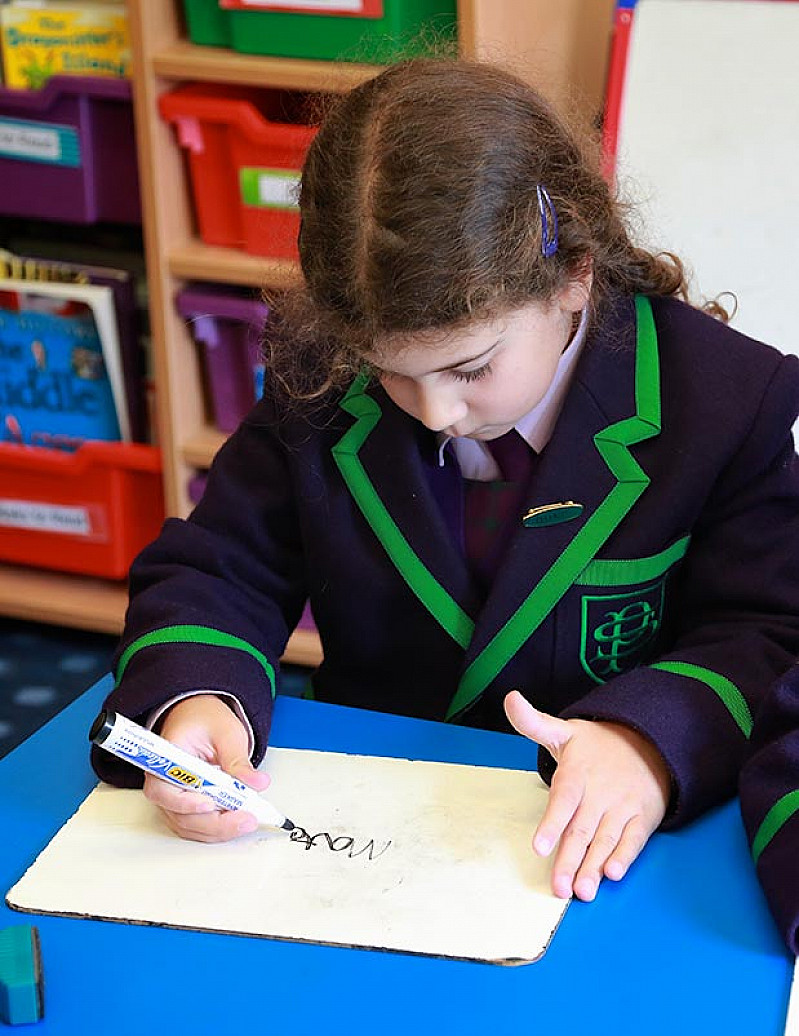
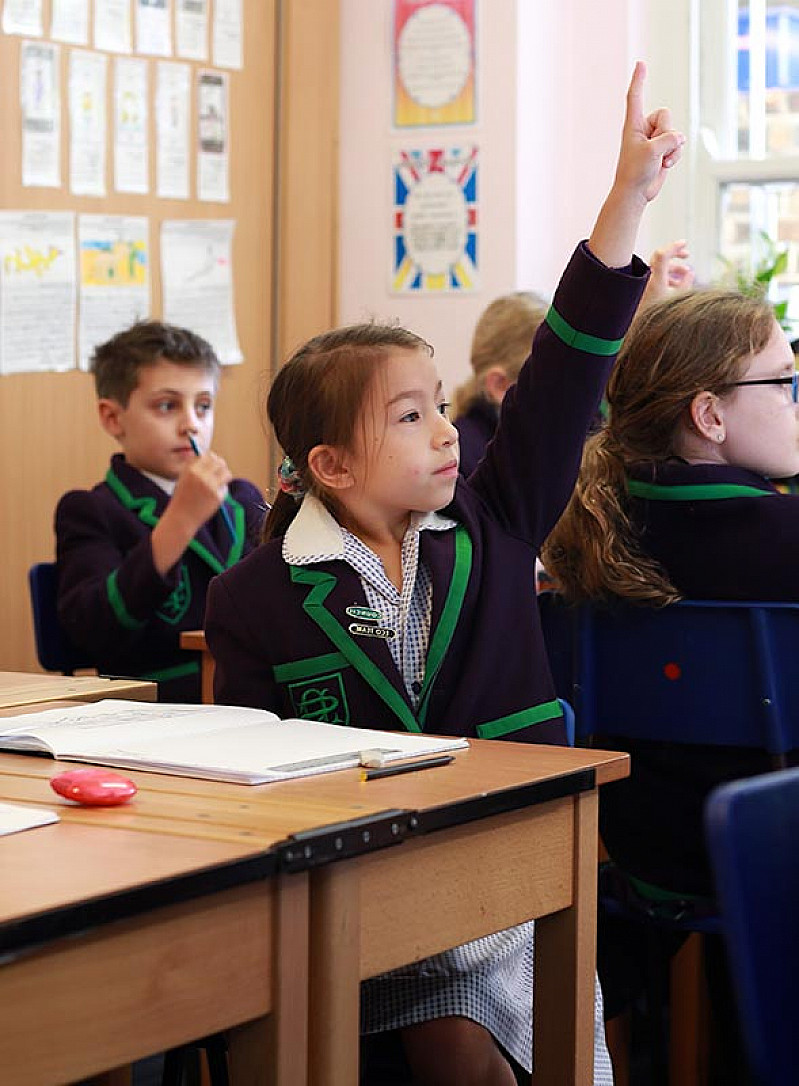
Science lessons at The Pointer School are designed to be hands-on and stimulating in order to support pupils to gain a greater understanding of the world around them. Teachers encourage pupils to show curiosity about how things work and help them to understand how Science can be used to explain what is occurring, as well as predict how things will behave.
In the Early Years, pupils are taught about the similarities and differences between places, objects, materials and living things. Nursery and Reception students will talk about features of their own immediate environment and how other environments might vary from this. They make observations of animals and plants through trips in the local area, (such as Greenwich Park) and explain why changes occur.
Key Stage One Science is taught through a topic-based programme. Year One and Two both study six different topics per year, and meet curriculum objectives through these topics. Pupils will observe more closely the natural and man-made environment around them and will begin to use simple scientific language to talk about what they have found out. This topic-based program involves a variety of hands on lessons, as well as enrichment through trips to places such as The Royal Observatory, the seaside and London Zoo.
In Key Stage Two, pupils will be given the chance to broaden their scientific view of the world around them and to develop a deeper understanding of a range of scientific ideas. Upper Key Stage Two children begin to delve into the study of Chemistry, Physics and Biology in order to prepare them for further scientific study in secondary school. This will stand them in good stead when considering their future career prospects.
At The Pointer School we celebrate National British Science week every year through activities, competitions and workshops.
At Pointers we cover Humanities in three distinct ways. From Nursery to Year 2 we cover Humanities through topic-based learning, which includes exciting modules such as Jungles, Dinosaurs, the Arctic and Transport. In Years 3 and 4 we teach the subject distinctly as Humanities, combining Geography and History, before returning to them as standalone subjects in Years 5 and 6, when the pupils prepare for the transition to secondary school.
Pupils learn about the world and how people live in different ways to how we live in London. In EYFS pupils explore places and people and think about the different environments that we have in the world. Topics include Minibeasts and Homes Around the World. In Key Stage 1 the pupils start to build an appreciation of the natural and human world through topics such as Oceans and 'Rain, Hail or Shine' (weather and climate). In Key Stage 2, pupils study a range of physical geography topics such as Volcanoes and Earthquakes, alongside building an appreciation of protecting our environment.
We have an annual Young Geographer of the Year prize for pupils across all year groups. The most recent prize focused on "What makes where I live special?" Pupils explored their local area such as Blackheath and Greenwich, making posters, leaflets and writing essays.
History follows a parallel structure to Geography in the school. Early topics include Castles and Explorers Through History. Pupils build up a knowledge of where places are but also their historical context. Situated in London we have a wealth of history to draw on. In Year 2 pupils learn about the city in the London Calling module and they also explore the history and economics of chocolate in the Charlie and the Chocolate Factory topic. As pupils enter Key Stage 2 we take them through a timeline of History, starting in the Stone Age, building through the Egyptians and Roman Britain, to Vikings, Tudors, and the World Wars.
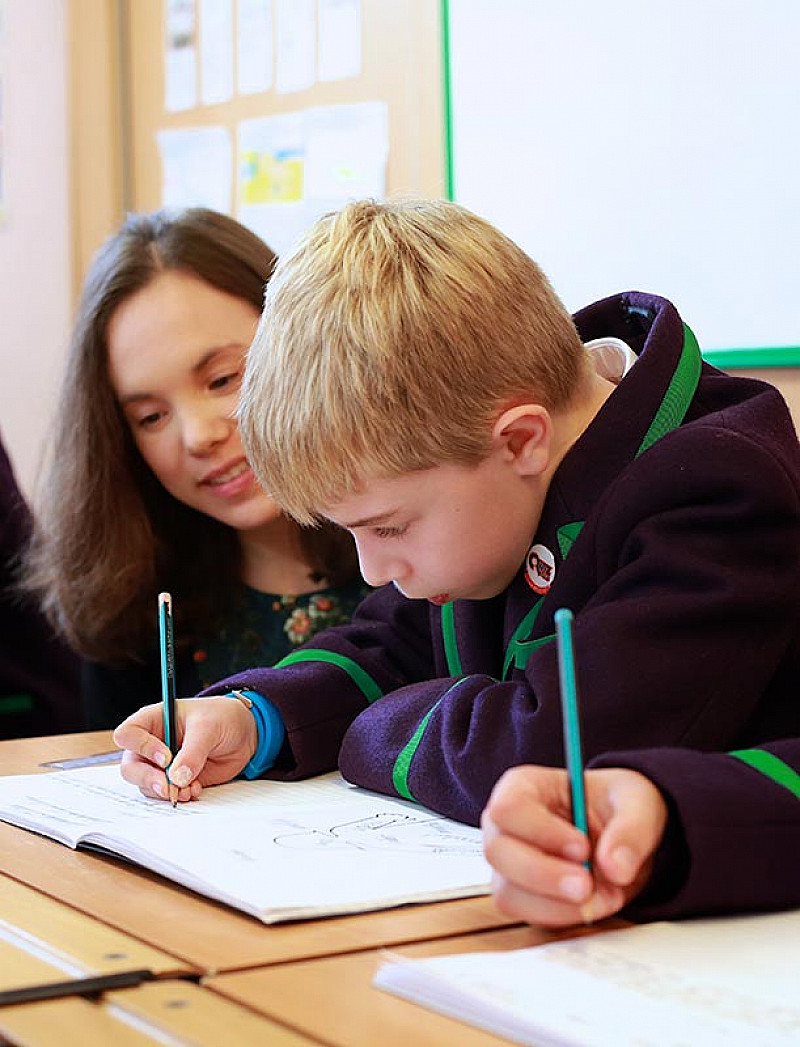
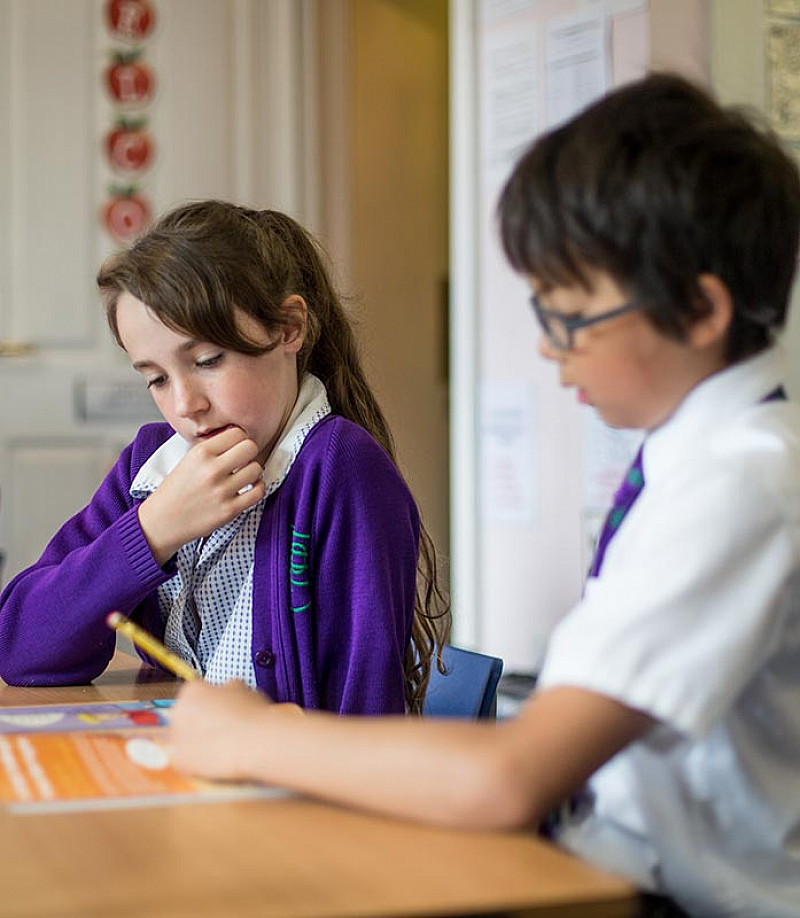
We aim to provide our children with a varied and exciting RE curriculum. We want to give them the opportunity to learn about Christianity and how it can produce a wholesome, caring life-style, whilst also helping them to appreciate the diversity of our society and the other main world religions. Opportunity is given to compare themes across important religions, and to think about what life would be like for children from these backgrounds.
In the Early Years, children are introduced to simple Bible stories through the scheme known as God's Story. This curriculum is a year-long programme to work through the Bible, from creation to Pentecost, telling many of the key stories of the faith along the way through sensory activities, small world play, role play, craft, construction, books, and puzzles/games.
In Key Stage 1, more is learnt about Bible stories, churches and worship celebrations, and what we can learn from these to apply to the way we treat and care for each other. Places of worship and significant people from other faiths are also drawn in to the curriculum, through the Humanities.
In Key Stage 2, Religious Education is often tied in to the work in History and Geography. For example, the animated series “Friends and Heroes” brings Bible stories to life for pupils but is set in Rome in the time of Nero. Different religions form an important area of study in all the ancient civilisations, such as the Mayans and Ancient Greeks. In Upper Key Stage 2 Islam, Hinduism, Sikhism, Buddhism and Judaism are looked at in more depth, as well as our attitude to the environment and how to care for our planet. The role of women in religion is highlighted, and parts of the Bible which are beautiful or well-known as literature are studied. Children from various faith backgrounds are encouraged to take an active part in our religious studies and to share their beliefs and experiences.
We pride ourselves on providing a creative Art and DT curriculum that meets all the National Curriculum requirements. It is a curriculum that is designed to build on the unique needs of every child in our school.
Expressive arts and design is one of the four specific areas within the Early Years Foundation Stage (EYFS). Our pupils are offered many opportunities to express themselves by exploring a variety of materials, tools and techniques, experimenting with colour, design, texture, form and function. They are encouraged to be imaginative and to represent their own ideas, thoughts and feelings.
In KS1 pupils are taught to use a range of materials creatively to design and make products. They are offered opportunities to use drawing, painting and sculpture to develop and share their ideas, experiences and imagination. Children are also introduced to the work of a range of artists, craft makers and designers. We want children to be able to describe the differences and similarities between different practices and disciplines, whilst making links to their own work.
In KS2 we really develop children’s different techniques, including their control and their use of materials, with creativity, experimentation, building an increasing awareness of different kinds of art, craft and design. We aim to improve their mastery of art and design techniques, including drawing, painting and sculpture with a range of materials [for example, pencil, charcoal, paint, clay]. We continue to learn about great artists, architects and designers in history, developing each child's critical eye.
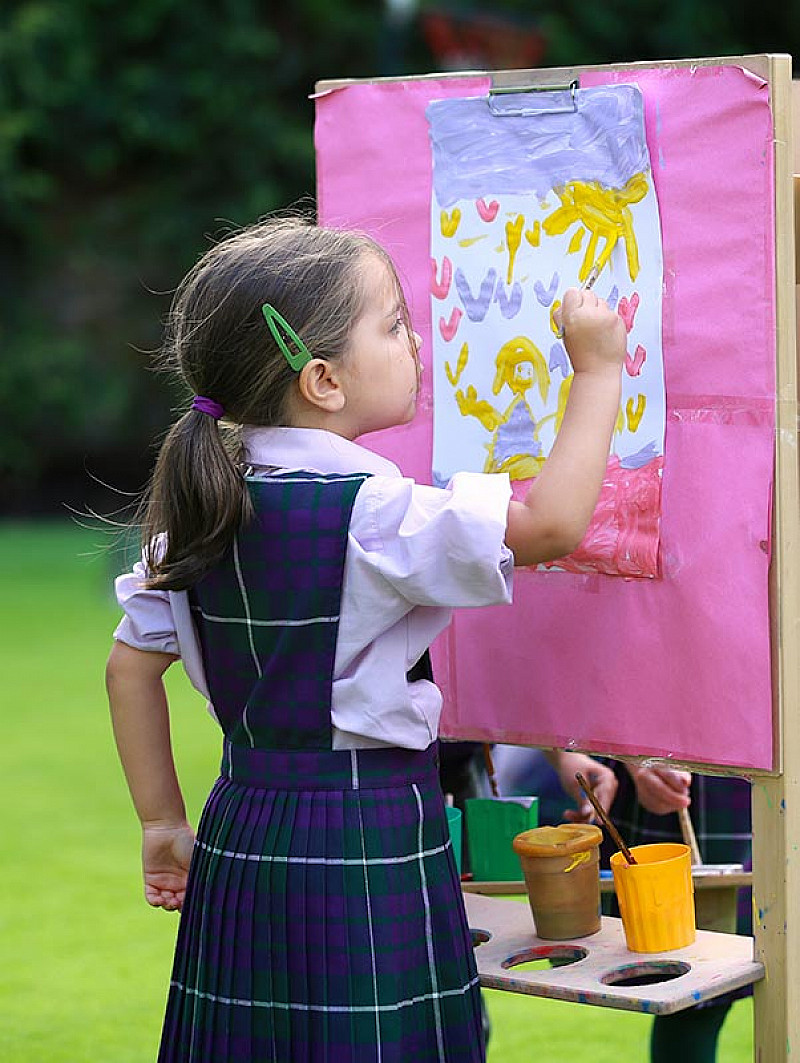
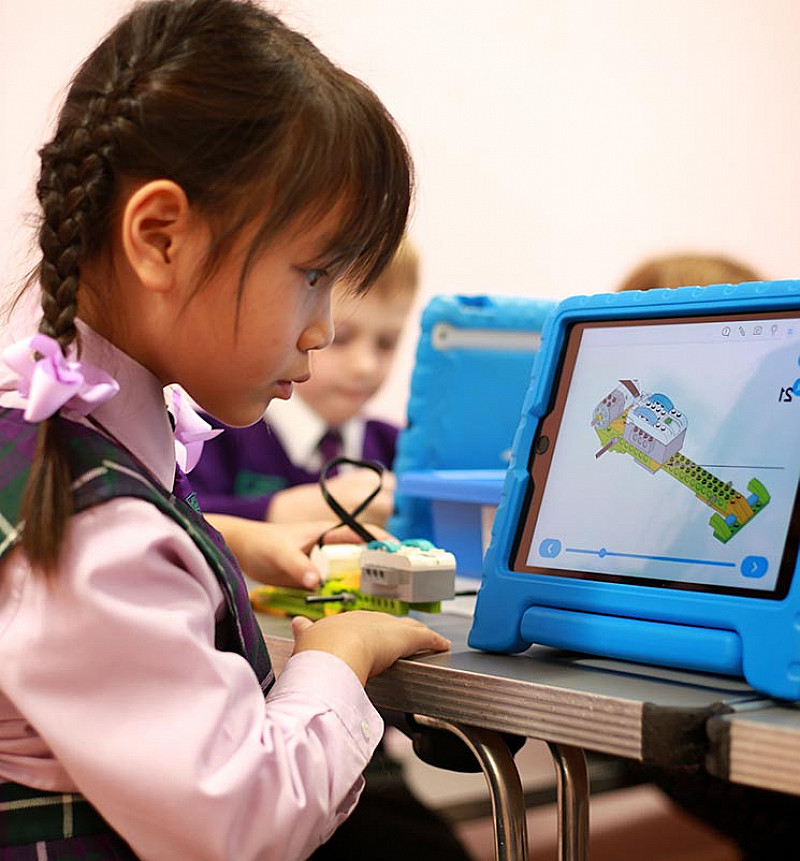
A high-quality Computing education equips pupils to use computational thinking and creativity to solve problems. The core of Computing is Computer Science, in which pupils are taught the principles of information and computation, how digital systems work, and how to put this knowledge to use through programming. Computing also ensures that pupils become digitally literate – able to use, and express themselves and develop their ideas through, information and communication technology.
Closely connected to this is e-safety, and we aim to ensure all pupils are able to successfully participate in a digital world safely.
From the beginnings of teaching in our Early Years, we endeavour to encourage our children to recognise that a range of technology is used in places such as homes and schools. They are provided with opportunities to select and use technology for particular purposes. Across the school, all children have access to individual iPads and we aim for pupils to gain a secure understanding of coding concepts such as algorithms, sequences and variables - as well as developing computational thinking skills through decomposition, logical reasoning and problem-solving. The teaching of Computing at The Pointer School is carefully designed, planned and implemented to ensure that all pupils are developing skills suited to the modern and ever changing world, whilst being challenged to fulfil their potential.